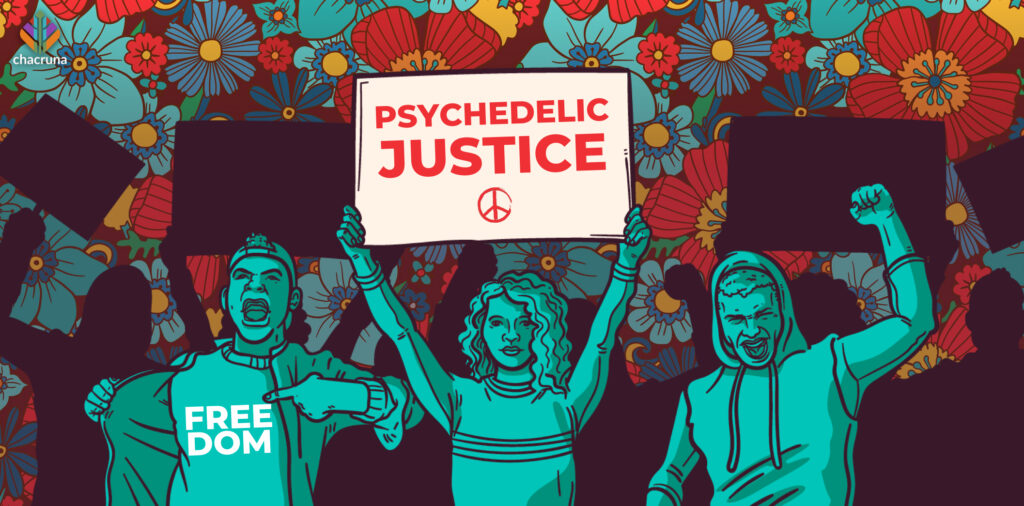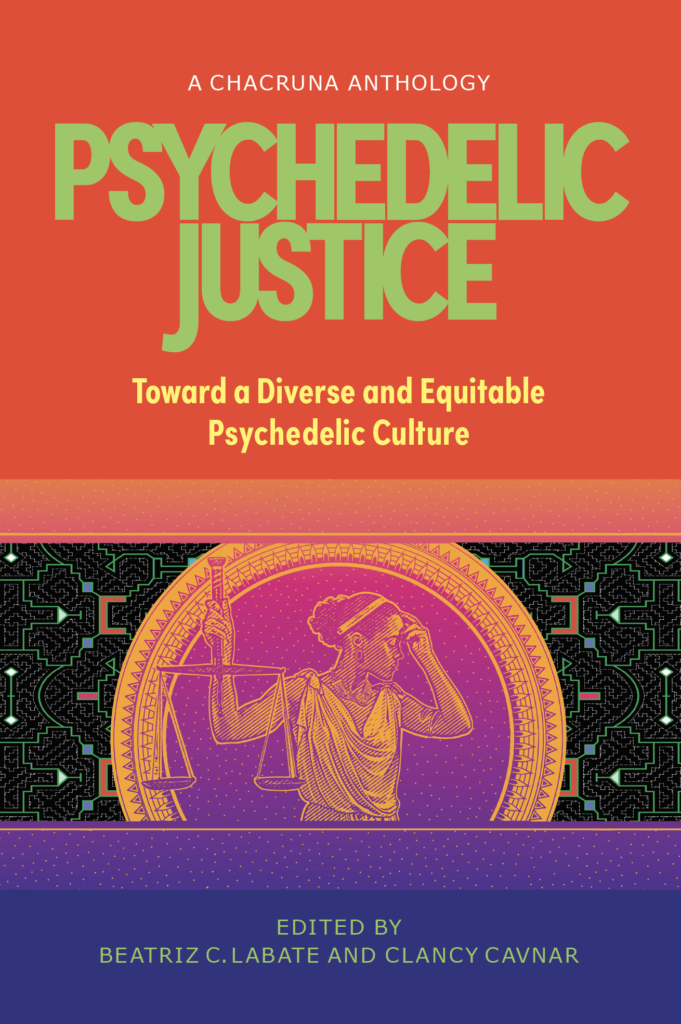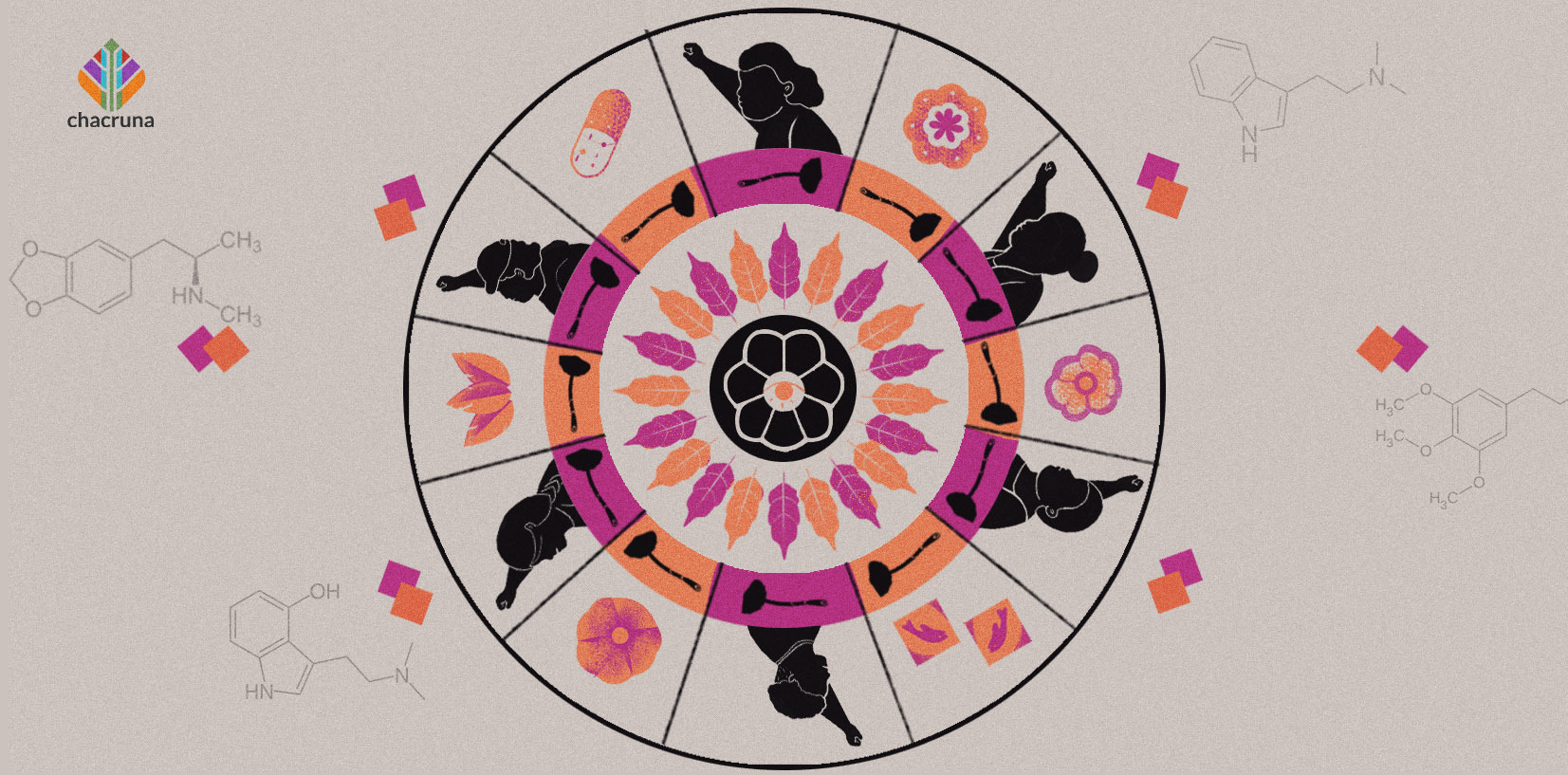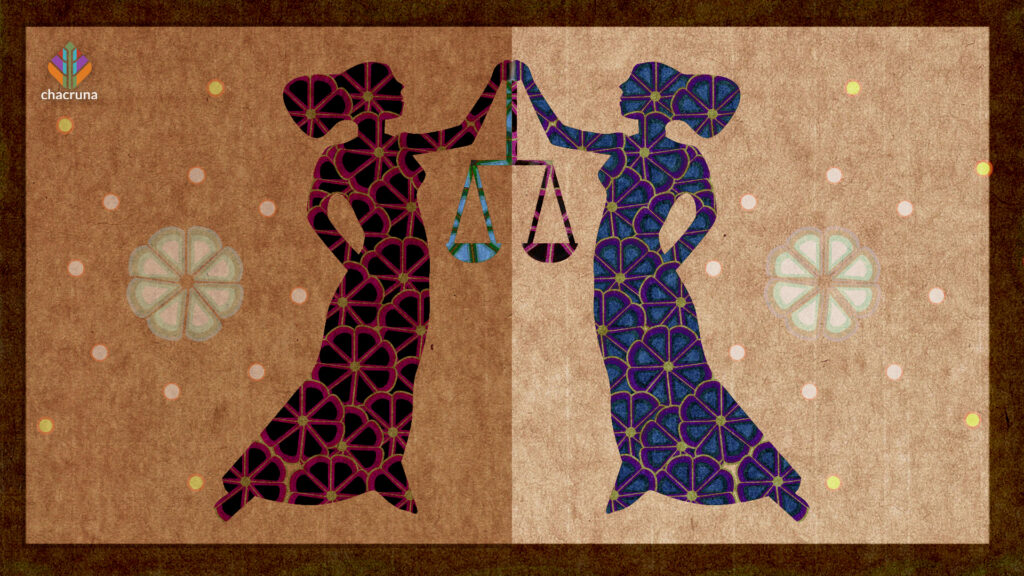- Global History of Psychedelics: A Chacruna Series - October 4, 2023
- Can Psychedelics Promote Social Justice and Change the World? - August 30, 2021
- Kathleen Harrison: Wisdom, Endurance, and Hope – Reflections from a Psychedelic Woman - August 18, 2021
The concept of social justice has been with us for over a hundred years. It initially emerged in the 19th century among disgruntled workers in Europe, frustrated that they provided labor, sweat, raw energy but did not get to share in the spoils of industrialization. They relinquished their bodies and minds to pursue a better life and future, but in return, felt the growing gulf of income inequality and the sting of discriminatory systems that restricted their access to education, health care, and legal power. Famously, the grievances experienced by an expanding working class around the globe erupted in demonstrations of collective action that generated an ideological commitment to equality.

Recordings are now available to watch here
In the 21st century, social justice has expanded beyond its working class roots and evolved to embrace a more diverse way of understanding marginalization, discrimination, and inequalities that go beyond wealth disparities alone.
In the 21st century, social justice has expanded beyond its working class roots and evolved to embrace a more diverse way of understanding marginalization, discrimination, and inequalities that go beyond wealth disparities alone. Today’s social justice advocates recognize a more complex set of structures and systems that produce inequalities by addressing sexism, racism, ableism, capitalism, and colonialism alongside homophobia, transphobia, climate change denial, sexual abuse, and ecological destruction. Social justice advocates confront and reject a set of systems and attitudes that perpetuate inequalities.
Despite the change in tone from the historical workers’ revolts, collective action remains at the forefront of justice work. But collective action is complicated when we appreciate the intersectionality of injustice in today’s world. That is to say, how do we prioritize a growing list of inequities, especially when drawing focus away from one to concentrate on another can cause divisions? Are wealth inequalities more of a priority than environmental concerns, or should we first focus on systemic racism? These goals are not necessarily oppositional, but they can divert energy away from strategies of wholesale collective action. As the authors in this collection ably show us, social justice work in the 21st century is vital—and it is also very complicated. In this collection, we see examples of how we can effectively use collective action to promote the needs of all individuals while being sensitive to intersectional forms of injustice.
Simply put, psychedelics might be the lubricant we need to turn the gears of a justice revolution.
So, what do psychedelics have to do with justice? Simply put, psychedelics might be the lubricant we need to turn the gears of a justice revolution. We are not the first ones to think that psychedelics have the potential to inspire revolutionary actions. In 1966, the US Public Health Service submitted a report in response to a rumor that psychedelic apostles would dump LSD into a major city’s water supplies. Variations of this rumor spiraled through media outlets in North America and Europe, which triggered a debate about whether a collective dosing experiment might end the Cold War, dampen the frenetic pace of capitalism, bring harmony to communities in conflict, or take the edge off ideologically entrenched ideas. In other words, the promise of a collective dose of psychedelics was part of a fantasy that such a prank might help everyone be more tolerant and respectful of each other’s differences.
As we experience a resurgence of interest in psychedelics, we can again fantasize about a different future. When Aldous Huxley and Humphry Osmond introduced the word “psychedelic” in 1957, they too were fantasizing. Their playful efforts to create a word came from a deep desire to inspire a process, a way of thinking—or even better—a way of thinking differently. Some of their earlier drafts seized up concepts of phaneros (manifest) and thumos (soul) to generate linguistic connections with a sensation of opening, making evident, mind-moving, mind-rousing. Ultimately, they settled on mind-manifesting after agreeing that it was uncontaminated by other associations. Their contemplation on the term was deliberate. Huxley and Osmond sought to avoid over-medicalizing the experience by choosing a word that would invite reflection. They decided on a term that was less likely to be dismissed as part of an already established way of organizing information or privileging a specific knowledge system. We might disagree as to the extent that they achieved this free association since the word continues to inspire wide-ranging discussions about where psychedelics fit in our world—as medicines, commodities, plants, ideas, spirits, and attitudes.
We might be tempted to dismiss the efforts of these two deceased white men, whose social networks situated them within an elite set of thinkers. They hardly fit the profile of social justice warriors in the 21st century. It is true, some of their later writings and ideas have been discarded as elitist. However, I encourage us to listen not just to their erudite accents but hear how they invested in psychedelic thinking. For these early champions of psychedelic thinking, these drugs were a means to an end: to change how we think.
The optimism they invested in psychedelics came from the core idea that these drugs have the capacity to change the ways we relate to one another by opening our minds to ideas that we could not otherwise see without help.
The optimism they invested in psychedelics came from the core idea that these drugs have the capacity to change the ways we relate to one another by opening our minds to ideas that we could not otherwise see without help. Of course, they did not discover this wisdom. They merely articulated it in a particular manner that brought a more diverse set of traditions, ways of thinking, and healing methods into mainstream discussions.
As Western-trained thinkers, they were mesmerized by how others had approached plant-based medicine, especially Indigenous healers in the Americas. They tried to honor Indigenous practices, sacred teachings, and plant-based knowledge by participating in ceremonies and helping to legally lobby governments for protected access to plant medicines for Native American Church members. But the legacy of westerners learning from these ceremonies is fraught with contradictions, exploitation, and broken promises. Despite attempts to convince the government about the sacred use of peyote, legal efforts failed, and Indigenous people suffered.
The application of psychedelics as therapies attempted to stem the tide of medicalization and secularization by bringing attention to the cadence of healing through ceremony and the reflection on spirit from listening carefully to voices that exist without bodies. These men cultivated relationships with a network of women who worked as psychics, Native American Church leaders, and schizophrenic patients. These interactions helped psychedelic thinkers listen to perspectives and teachings that western science previously discarded. As Huxley famously wrote, these drugs merely opened the “doors of perception.” It is up to us to walk through those doors and not simply marvel at their existence.
When Karl Marx was developing his theories of social justice, he wrote that religion is like opiates. However, he was not referring to any mind-manifesting moment associated with taking drugs. Instead, he described a very different chemical reaction, one focused on numbing the pain and trauma caused by discrimination leveled at the laboring classes. For Marx, religion created a distraction from that pain that fuelled campaigns for justice. But psychedelic drugs are not opiates for the masses—they fulfill a very different role. Rather than being a distraction, psychedelics provide a way to connect pain and healing through conscious engagement. They are a means to an end, not an end in themselves. Psychedelics alone will not vaccinate us against a pandemic of isms.
The legacy of connections, collective action, and healing from psychedelics has a history stretching far beyond the coining of the word. As contributors in this volume show us, Indigenous ceremonies with plant medicines have a long tradition of linking people with plants in the confrontation of pain.
Discover the Indigenous Reciprocity Initiative of the Americas
We can experience pain on an individual level, like overcoming an unhealthy relationship with opiates. We can also experience pain collectively, such as the despair felt by many when Jair Bolsonaro was elected as President of Brazil. His policies have wreaked havoc on the Amazon rainforest and Indigenous communities, making us feel like the clock of social and environmental progress is regressing.
Sometimes that pain stems from injustice, whether that be feelings of displacement from one’s home, disenfranchisement from one’s community, disorder from one’s own body and mind, or disunity from one’s social environment. Contributions in this collection introduce us to these topics by unpacking the history of sexism, patriarchy, homophobia, and binary thinking that causes harm—issues especially pervasive in medical and legal fields. We also look at ways to rethink trauma and racism.
Psychedelics nourish these topics with intellectual energy to visit sites of trauma with open minds and hearts. These contributors give us constructive guidelines for respectfully inviting Indigenous participants into conversations without tokenism, offer cautionary advice about the risks and rewards of bringing psychedelics “out of the shadows” and into the marketplace, and teach us how to recognize sexual abuse in intimate healing settings. Taken as a whole, the authors embrace the spirit that psychedelics are indeed a project of fascination; thinking with and about psychedelics allows for greater investments in changing our circumstances—as individuals and as a collective.
This Chacruna anthology unites authors who recognize the power of psychedelics to change the way we think. It is not just that we need to update the browser on our search engine, but rather that we need to unplug the computer altogether and look instead to different sources of information, be it from the stars, plants, or people in our communities––especially those who are different from us.
Social justice advocates ask us to think critically about the structures of power in our world that perpetuate inequalities, and psychedelics offer us an intellectual passport to visit these sites of injustice, to understand the violence perpetuated by discrimination, and to generate the courage to change history.

Social justice advocates ask us to think critically about the structures of power in our world that perpetuate inequalities, and psychedelics offer us an intellectual passport to visit these sites of injustice, to understand the violence perpetuated by discrimination, and to generate the courage to change history. It is then up to us all to integrate the insights we gain from our experiences with psychedelics to create a more just, tolerant, and supportive world. The authors in this collection give us a lot of tools to begin the process of integration.

The book will be published on the 14th of September by Synergetic Press, but to purchase your copy of Psychedelic Justice in advance, click here.
Art by Karina Alvarez.
—
Note:
This is the preface to the book Psychedelic Justice, co-edited by Beatriz Labate and Clancy Cavnar. It will be published by Synergetic Press in September 14, 2021.
Take a minute to browse our stock:
Did you enjoy reading this article?
Please support Chacruna's work by donating to us. We are an independent organization and we offer free education and advocacy for psychedelic plant medicines. We are a team of dedicated volunteers!
Can you help Chacruna advance cultural understanding around these substances?


















